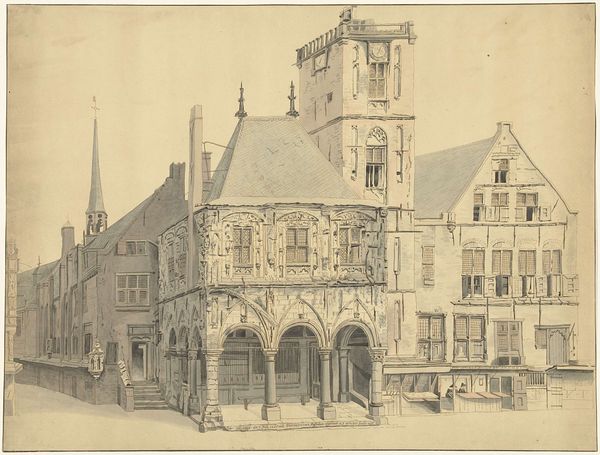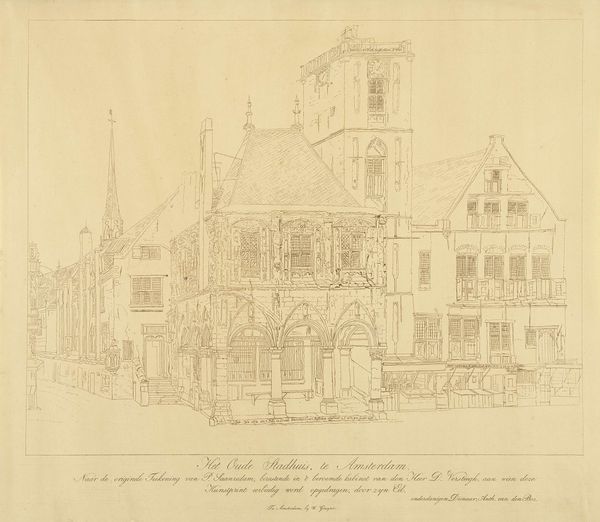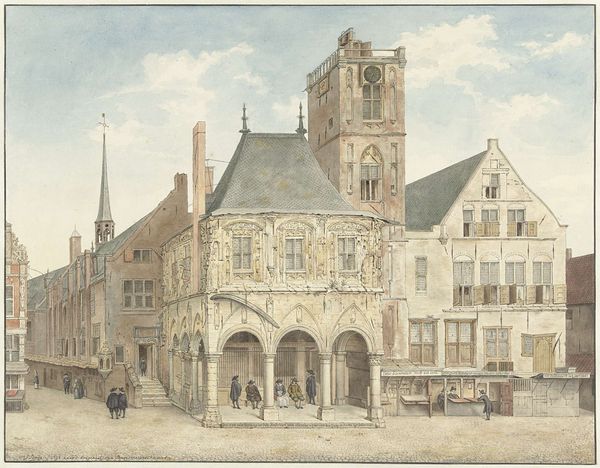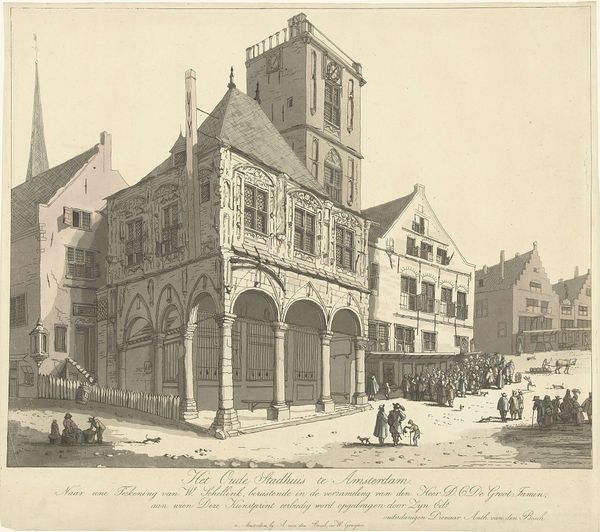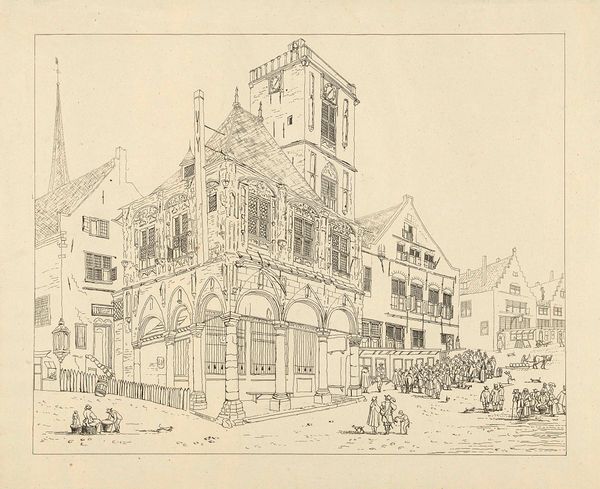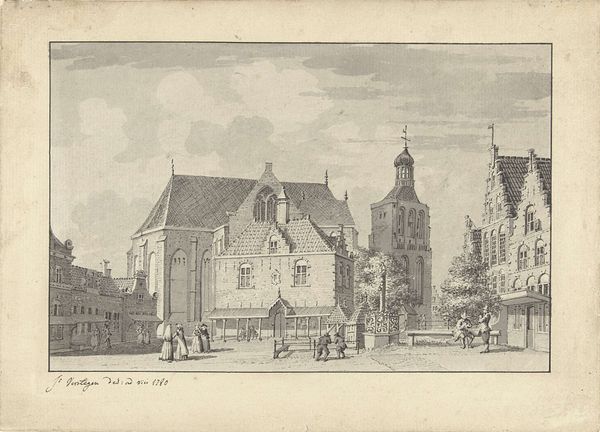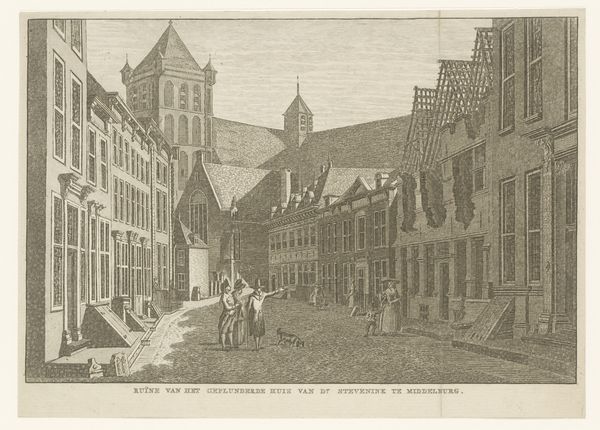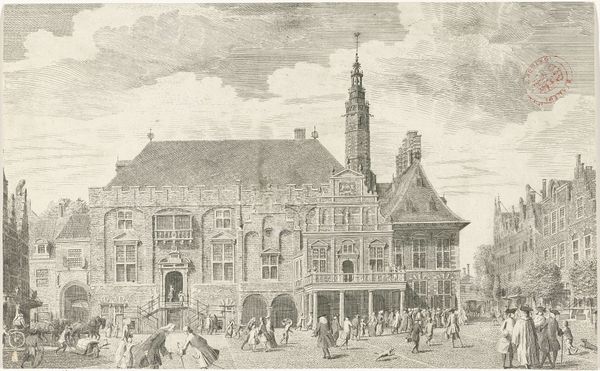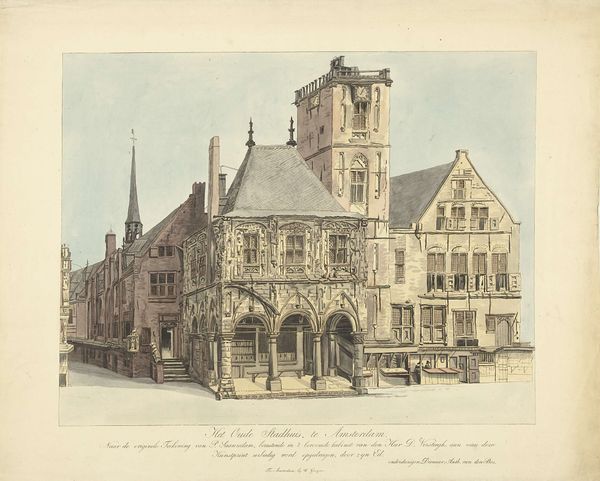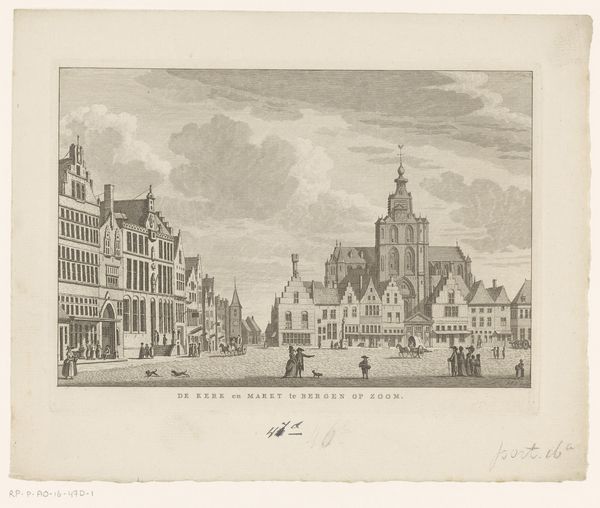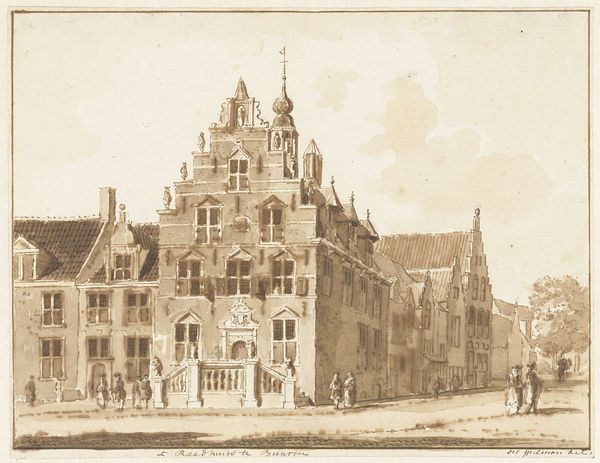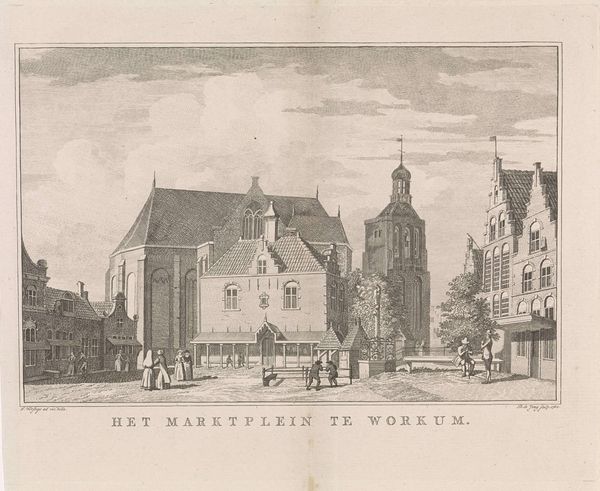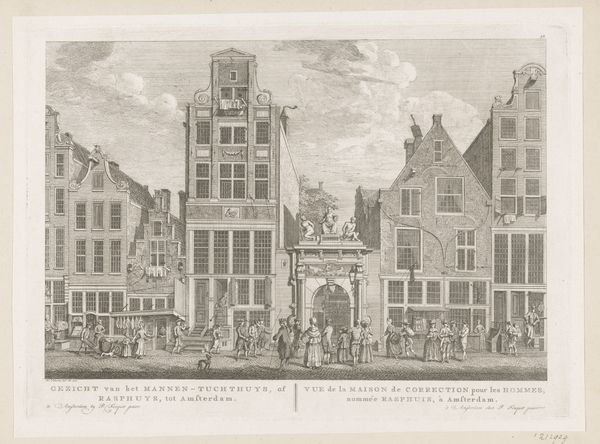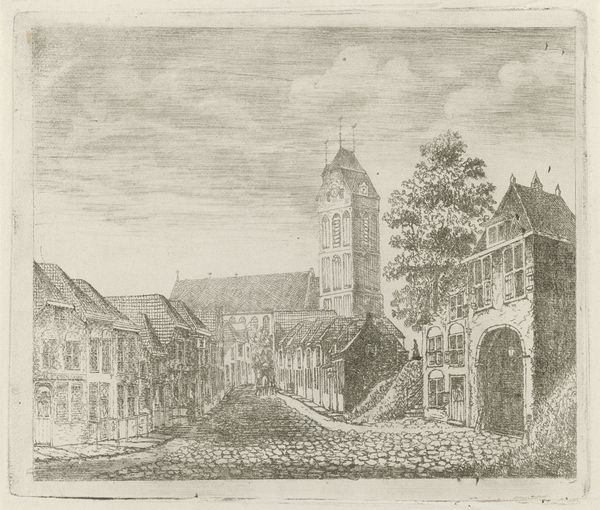
drawing, ink, architecture
#
architectural sketch
#
drawing
#
aged paper
#
quirky sketch
#
pencil sketch
#
sketch book
#
personal sketchbook
#
ink
#
sketchwork
#
pen-ink sketch
#
pen work
#
architecture drawing
#
cityscape
#
architecture
Dimensions: height 458 mm, width 540 mm
Copyright: Rijks Museum: Open Domain
Curator: What strikes me immediately is the moodiness of this drawing; the somber tones and architectural details create a distinct sense of place and time. Editor: Indeed. What we’re viewing here is Anthonie van den Bos’ depiction of "The Old Town Hall of Amsterdam," likely created sometime between 1778 and 1838. It's a drawing using pen and ink, rendering a detailed cityscape. Given Van den Bos's work and the timing, what statements were he trying to make on dutch identity? Curator: The stark architectural style speaks to the societal structures, I wonder what that structure communicates regarding those involved with the justice system or town administration? Editor: Interesting. The emphasis on verticality, the soaring tower juxtaposed with the arched entrance...one could argue this imagery reinforces the importance of class structure. Those passing under the arches and in and out of buildings and market stalls versus those working within a top-down governance that dictates their actions. It reminds us how the architecture was part of the power that the administration held in the community. Curator: Precisely. And I wonder what message Van den Bos was communicating with their creation being a pen and ink medium - more specifically from what appears to be a sketch book? Were these private interpretations before wider publications to a mass audience? Or was it a reflection that this old construction style was coming to its end with the dawn of mass reproducible printing technologies that he captured a unique, last glimpse of the building and time? Editor: I think this discussion highlights why looking at art through a political and social lens is valuable. These weren’t just pretty buildings to van den Bos and he knew their significance to Amsterdam in the late 18th to early 19th century as it shifts toward wider European reforms in the coming decades. Curator: This exploration has certainly added layers to my understanding and I appreciate this look into how architecture reinforces those societal frameworks. Editor: Agreed. It reinforces the vital function of museums to preserve imagery, which in turn offers a unique perspective to how artists in specific times used imagery to communicate and translate their perspective to a society to reflect, question, and move forward.
Comments
No comments
Be the first to comment and join the conversation on the ultimate creative platform.
